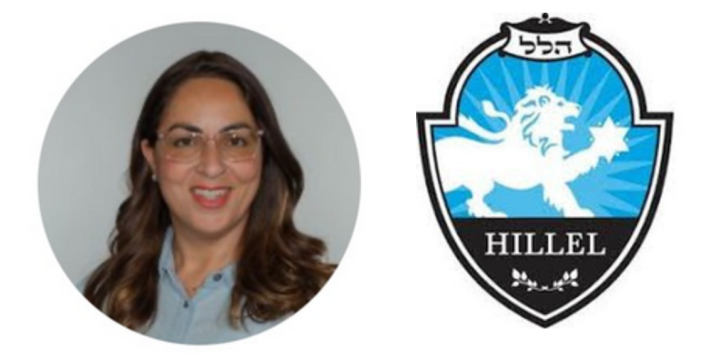Teacher Backgrounds
We interviewed AP Statistics teacher Mr. Kruger and AP World History/AP Human Geography teacher Reb Boyd about their paths to becoming Advanced Placement (AP) educators. We posed a series of questions aimed at defining the core of their academic approaches. Questions such as “Can you tell us about your educational background?” and “What teaching methods do you find most effective in AP classes?” were included in the dialogue. Our intention was not only to gain wisdom from their extensive teaching experiences but also to inspire future AP students at Hillel. Read ahead as we delve into the professional insights of our AP teachers, explore their instructional methods, and receive advice for navigating the challenges of AP courses.
To kick off the interview, both teachers were asked about their educational backgrounds: Mr. Charles Kruger shares a wealth of experience in the field of education, marking his 29th year as a math teacher. He was born in Nicaragua and his journey as a teacher began in 1995. Mr. Kruger has taught in diverse places around the world. “Over the years, I have taught in Panama, Mexico, and Boston, and now I’m here at Scheck Hillel,” he said. Reb Yaakov Boyd said: “I graduated with a Bachelor of Arts degree in Political Science from Georgetown University.” With minors in Hebrew and Arabic and three years spent in yeshiva, Reb Boyd brings a unique perspective to his teaching role. Both teachers provided insights into the Advanced Placement classes they teach and their experiences in those courses. Mr. Kruger specializes in AP Statistics, dedicating “two years at Hillel, but three at other schools” to the course. Meanwhile, Reb Boyd is in his second year teaching AP classes, having tackled AP World History last year and currently dividing his expertise between AP World History and AP Human Geography. Both educators exemplify a commitment to providing students with a rich and diverse educational experience.
Creating a Challenging Yet Supportive Learning Environment
Mr. Kruger and Reb Boyd advised about making learning challenging (yet helpful) for students. Mr. Kruger points out that subjects like AP Statistics can be tricky, but with a supportive environment, the subjects can be made easier. “To set up a supportive environment, you need to make sure students feel comfortable with making mistakes, asking questions, and self-assessing.” With a friendly setting, challenging topics become easier to manage. Reb Boyd suggests utilizing educational tools like video notes, readings, activities, and practice to help students thrive. He stated, “The secret to success is about multiple layers.” This mix of resources gives students different ways to understand and master tough subjects, making success more attainable.
Advice for People Considering Taking AP Courses
For those considering taking AP courses, Mr. Kruger commented, “AP classes are rigorous. You need to make sure you devote the time necessary to be successful. I will always urge students to look at their schedules and see if AP is something they can manage. In AP classes, you need to make sacrifices with your time to make sure that you are successful.” Reb Boyd shared how, “It’s less about the understanding and more about the work ethic. If you want it, the teachers at our school will put in more than their share. However, a student has to want to do well in these classes to be successful.” Working hard matters more than just understanding the material in AP classes. Teachers are there to help, but you need to be motivated and committed. If you are considering taking AP classes, it is important to balance your time effectively, be committed to your academic goals, and establish a strong work ethic.
Strategies and Perspectives on AP Instruction at Scheck Hillel
When asked about the most effective teaching methods in AP classes, Mr. Kruger emphasized the importance of collaboration and discussions. He stated, “A lot of collaborative work, discussions, problem sets, and questions that mimic the AP format (and the difficulty of it) are what I find the most beneficial to my students.” Mr. Kruger’s approach integrates collaborative learning and targeted problem-solving, aligning with the rigorous demands of AP coursework. Reb Boyd advocates for active learning and student engagement, noting how, “Students typically want you to do most of the work for them, but I found that active learning through sample activities and problems is usually the best.” Reb Boyd’s perspective underscores the value of empowering students through active participation and problem-solving activities, fostering a dynamic and effective learning environment in AP classes. In essence, these educators highlight collaborative learning, focused problem-solving, and active engagement as crucial aspects in delivering effective AP instruction, showcasing their dedication to preparing students for success in challenging coursework.
AP Course Assistance
As students, we all struggle with studying and staying organized with our many classes. We decided to ask Mr. Kruger and Reb Boyd if there are any specific study techniques or strategies they recommend for AP curriculums. Mr. Kruger answered, “I would say everything from research to watching videos to taking notes and simply reading the material from different sources. The more you see things from different perspectives, the more you will understand the topic.” Reb Boyd suggested that students use, “…Office hours effectively, more than any other tool. Personal reinforcement from the teacher allows you to determine where you stand and make sure that all your educational gaps are filled in.”
The final question we asked Mr. Kruger and Reb Boyd was, “What challenges do students commonly face in AP classes and how do you help them overcome these challenges?” Mr. Kruger answered, “The challenges most students have in an AP class are managing the workload and the expected quality of work being submitted. You help them improve by modeling and showing exemplary solutions to raise the quality of analysis.” Reb Boyd stated, “In the beginning, there is always a work-effort challenge. Students need to learn that these courses take a long time in terms of homework and effort. Additionally, as teachers notice a lower level of reading comprehension on a year-to-year basis, they must provide more and more support through reading notes. It’s hard to gauge this before you start the class.” Our discussion with Mr. Kruger and Reb Boyd provided us with valuable insights into their academic journeys and instructional approaches. They addressed questions exploring topics of educational backgrounds and effective teaching methods in AP classes. We hope their wisdom will inform those unfamiliar with the process of becoming an AP teacher and will inspire future AP students at Hillel.























